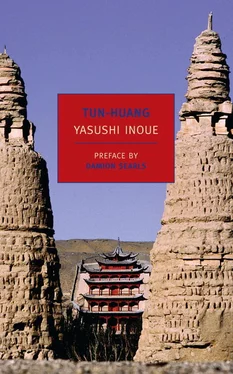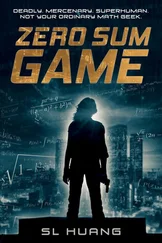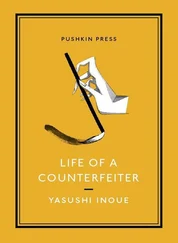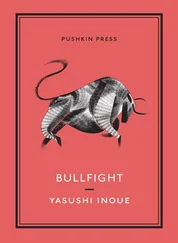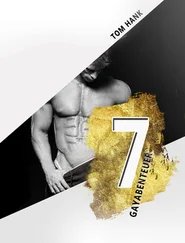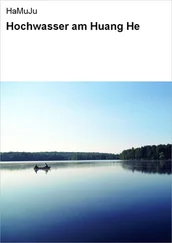Hsing-te opened it. Several words he had selected leapt to his eye: thunder, sunlight, sweet dew, whirlwind — words for natural phenomena were written in one line. To the right of these were the Hsi-hsia terms, with Chinese pronunciation given for Hsi-hsia writing and Hsi-hsia pronunciation noted for Chinese words. The writing was very poor, as if some student had copied it, but despite everything this small book held fond memories for Hsing-te.
On another page he saw the words: cats, dogs, pigs, camels, horses, oxen, and other such animals, and on the next page: eyes, head, nose, teeth, mouth — and others for the parts of the body had been selected.
For some time, Hsing-te looked over several pages of the booklets, then he picked up a brush, dipped it in ink, and wrote “The Pearl in the Palm Hsi-hsia — Chinese Handbook” on the long, narrow white paper pasted onto the cover. Laying down his brush and pointing to the book, Hsing-te asked the elder So, “Will this do?” The old man nodded, and Hsing-te wrote the same words on several pieces of paper. These were to be pasted on other copies of the book.
As soon as Hsing-te had arrived at Hsing-ch’ing, with help from So, he had started work on the mission that had brought him from distant Kua-chou. Government permission was granted after about a month. The six Chinese Hsing-te chose were to be sent to Kua-chou as Yen-hui’s guests. Of the group, two were Buddhist priests. Both were learned in Chinese and Hsi-hsia and steeped in Buddhist culture. They were in their fifties, but the others were around forty. All had previously worked with Hsing-te. His request was granted quickly because no Buddhist sutras were being translated in Hsing-ch’ing; indeed, they had hardly any sutras to work with. Hsing-te had even heard rumors that in the near future an envoy would be sent to China to obtain all the necessary sutras.
When negotiations were concluded, Hsing-te decided to return to Kua-chou before the others. It would have been more convenient to travel together, but his companions had to make preparations for the trip and did not wish to leave Hsing-ch’ing until the beginning of autumn.
In the hottest part of July, Hsing-te finished his work in Hsing-ch’ing and joined Kuang’s party, now heading west toward Kua-chou. Kuang had several times the amount of goods he had come with. Thus another thirty camels had been added, and some of the camel men were handling ten camels each. The major portion of the load was silk, but there were also small quantities of brushes, paper, inksticks, ink-stones, scrolls, paintings, and antiques.
Since Hsing-te was well-acquainted with Kuang’s temperament, he tried to stay away from him. Kuang’s pride displayed itself in strange ways, so it was extremely difficult to avoid annoying him. Hsing-te thought it best to keep out of his way, but Kuang would find reasons to seek him out. He had decided that Hsing-te alone among the ignorant, uncouth people in the caravan and the camel men could converse on a fairly equal level with him.
The journey with Kuang was not peaceful. The first incident occurred on the second day after the caravan had left Liang-chou and had camped along the banks of a stream in the grasslands. Hsing-te was in a tent with five camel men when Kuang appeared. As always, as soon as he appeared, the atmosphere in the tent became tense, and the camel men huddled in one corner and turned their backs on the two.
Kuang ignored them, approached Hsing-te, and for some reason blurted out, “In any case, all Uighur women, highborn and low-born, are prostitutes.”
In most instances, Hsing-te disregarded anything Kuang said, but he could not ignore these words. “That’s not true,” he said rather strongly. “Some Uighur women are chaste.”
“There’s no such thing.”
“I can’t speak for the lower classes, but I know of a respectable royal girl who has given up her life to prove her chastity.”
In answer to Hsing-te, Kuang roared, “Shut up! What do you mean by ‘respectable royalty’? You can’t tell what the background of any royal Uighur family is!” He glared at Hsing-te as he spoke. Kuang seemed to imply that the term “respectable royalty” should be applied only to the Wei-ch’ih family of Khotan. Hsing-te was well aware of this, but he would not yield. Until then, Hsing-te had given in to this brash young man in all respects, but he would not concede this point.
“What do you mean, you can’t tell where they came from? By royalty, I mean a clan which has passed down nobility of spirit through several generations.”
“Be quiet!” Kuang suddenly grabbed Hsing-te’s collar and began to shake him. “Just try to repeat that nonsense!”
Kuang pulled Hsing-te up from the straw on the ground. “Now, let’s hear you say it again.”
Hsing-te wanted to speak, but his voice would not come out. The grip around his neck loosened and he was thrown to the ground, and before he could run he was picked up and thrown down again. He had had such rough treatment from Kuang several times before, but this time he would not give in. Each time as he rolled on the ground, he sputtered out broken phrases or words, “royalty is,” “noble,” “spirit.”
“All right then!” Kuang finally seemed to have given up on Hsing-te, who continued to resist him, and stopped beating him. He looked pensive. Then he said, “Follow me,” and left the tent.
Hsing-te followed. The night air was as cold as in winter. The ground, scorched by the sun during the day was now completely chilled. In the dim light, Hsing-te saw many tents neatly lined in such straight rows that they seemed to have been marked off with a ruler.
Kuang walked silently away from the tent toward the the plains. Then he stopped and said, “Now, say the only ones worthy of being called royalty are the Wei-ch’ih family of Khotan. If you do, I shall let you go back without cutting your arms and legs to pieces. Now, say it!”
“I won’t,” Hsing-te replied.
Kuang seemed to ponder for a minute. “Why can’t you say it? All right, if you can’t say that, you good-for-nothing, just say that all Uighur women are prostitutes. You can say that much, can’t you? Say it!”
“I won’t.”
“Won’t! Why won’t you?”
“Because a Uighur princess jumped off a city wall to prove her chastity, and I refuse to yield on that point.”
“All right then!” With these words, Kuang jumped on Hsing-te. At that moment, Hsing-te became a mere stick as he was whirled around.
After a bit, Hsing-te felt himself thrown into the darkness, where he landed on the damp grass. Hsing-te looked up toward the starry heavens and saw the sky tilting. The row of words “dew, thunder, and hailstones, lightning, rainbow, Milky Way” flitted through his mind as he lay stretched out on the bare earth. They were terms relating to celestial phenomena on one of the pages of the “The Pearl in the Palm Hsi-hsia — Chinese Handbook” which he had titled.
The next instant, Hsing-te felt his brutal adversary bending over him. “Now say it, you swine!”
“What do you want me to say?”
“Wei-ch’ih…” As his opponent began, Hsing-te instinctively pushed back Kuang, who was holding him down with all his strength. When Kuang realized that Hsing-te had resisted him, even though it was slight, his anger seemed to reach boiling point.
“Still want to play, do you?” Kuang stood and again grasped Hsing-te by the collar and pulled him up. Hsing-te expected to be whirled about again.
Then, in the next instant, he was abruptly released. Hsing-te staggered a few steps, then sank to the ground.
“What’s this?” Kuang threw the question at him. Kuang was holding something small and was trying to look at it in the dim light of the night. When Hsing-te realized that Kuang was holding the necklace, he thrust his hands into his robe. When he could not find it, he stood up. “Give it back!” he begged Kuang with a passion completely unlike his usual manner.
Читать дальше
